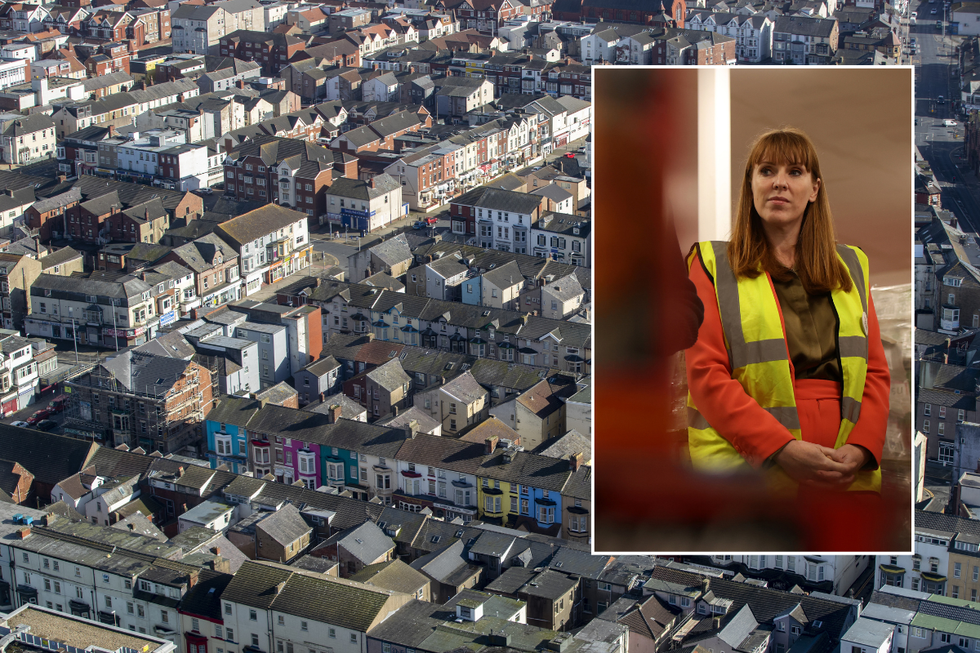Patrick Christys discusses Syrian asylum claims
GB News
More than £1.74bn was spent nationally on temporary accommodation for 117,000 households in 2024
Don't Miss
Most Read
Trending on GB News
New analysis has shown that suggested Labour plans to fix Britain’s “broken” asylum system risk exacerbating housing shortages.
The analysis by The Telegraph shows the proposals risk creating an internal civil war with local councils.
Deputy Prime Minister Angela Rayner's "pie in the sky" house-building targets are adding further pressure to local authorities, requiring them to build 2.5 properties every minute.
The ambitious construction goals come at a time when councils are already facing significant challenges in managing their housing responsibilities.

Government rules mean councils have certain quotas to adhere to
PA
Analysis shows Newham and Brent councils in London are facing the most severe pressures, with both boroughs having more than 20 per cent of households on social housing waiting lists.
These areas also host more than 30 asylum seekers per 10,000 residents.
Bolton and Islington are experiencing similar challenges, with between 15 and 20 per cent of their households on waiting lists, alongside comparable proportions of asylum seekers.
Luton completes the list of the five most affected local authorities, with between 10 and 15 per cent of its households waiting for social housing.
The data reveals a clear pattern of mounting pressure on local authorities already struggling with significant housing demands.

Brent council in London is among the councils facing the most severe pressures
Google Maps
Government rules mean councils have certain quotas to adhere to. For example, the number of asylum seekers in each local authority area cannot exceed 0.5 per cent of the population.
Labour councillor, John Woolf, who has responsibility for homes and neighbourhoods at Islington Council, told The Telegraph: "We are increasingly concerned about the challenges many refugees face in finding stable housing after being granted status.
"Since last year, we have seen a sharp rise in the number of refugees presenting as homeless.
"This is partly due to the faster processing of asylum applications, which is positive in principle, but also because some individuals are being given as little as seven days to leave their accommodation."
A spokesman for Luton Council said: “Luton is at the forefront of the UK housing crisis and currently faces an unprecedented demand for housing.
"Additional pressures are caused by the Home Office policy of accommodating disproportionately higher numbers of asylum seekers in Luton compared with other local authorities in the region.
"While this does affect our housing offer in the town, it mostly impacts the quantity of temporary accommodation options that we have until their asylum is processed."
Labour council leader for Brent Muhammed Butt insisted asylum seekers were not the main cause of pressure on housing stock.
He added: "The pressures on social housing in Brent come mostly from historic sell-offs under Right to Buy and evictions from private landlords, not asylum seekers placed in hotels by the Home Office.
"Ultimately, it is the Government that decides where asylum seekers are housed, and for the provision of their accommodation across the UK."
GB News has approached the Home Office for comment.








